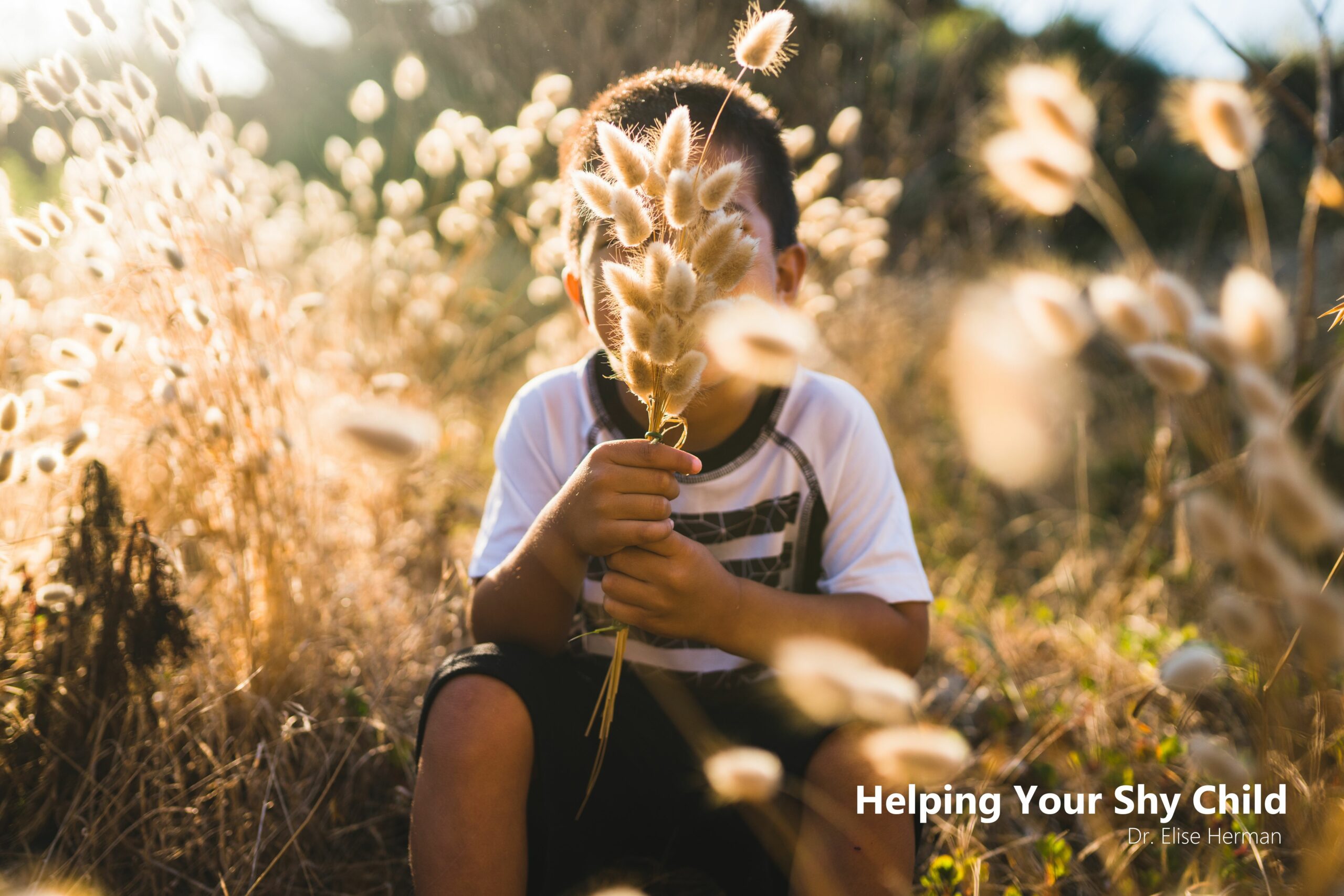By nature, some kids are more outgoing than others. Many children are shy and reserved when younger but become less so as they grow up. Being shy, however, just characterizes a child’s approach to the world (especially new situations) and does not have to be seen as a negative. There are felt to be some benefits of this personality trait as these children tend to be more observant and less impulsive. Shy kids may be slower to warm up and more cautious about jumping into a new social situation but given time and the opportunity to be involved when they feel ready, do fine socially.
You can help your child if they fall into the ’shy’ category:

It is important to separate common shyness from social anxiety disorder, which is more severe, long-term, and interferes with everyday life to a greater degree. Those with this issue worry excessively about social interactions and seek to avoid social situations when possible. This can negatively impact school, friendships, and overall emotional well-being. Talk to your child’s healthcare provider if you think your child may have social anxiety disorder as counseling and other treatments can be very helpful.
But don’t fret if you have a shy child—things will get easier! Accepting your child for who they are and supporting them as they work on social skills will help them gain the confidence they need as they grow.
more about The contributor

Dr. Elise Herman
Dr. Herman is passionate about community health outreach, school programs, and child/family health and wellness. She has more than 31 years of experience as a pediatrician in Ellensburg, Washington, the last 3 with KVH Pediatrics. In 2022 Dr. Herman mostly retired from practice and continues to contribute blog posts and remain a visible advocate for kids in the community.